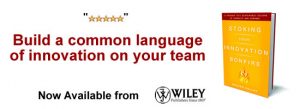The Next Industrial Revolution
Peter Cochrane looks at how the old industries are destroying the planet and we have to move onto the ’Food to Waste to Food Cycles’ made possible at the juncture of Nano, Bio and ITC if we are to sustain life on this planet and find our way forward.
NEVER MISS ANOTHER NEWSLETTER!
LATEST BLOGS
Starbucks and Big Tobacco
Back in the 1950’s smoking was glamorous, and just about everybody who was anybody smoked cigarettes. Then came the discovery, to the shock of millions, that sucking smoke into your lungs might not be good for you. Then came another revelation that one of the substances in tobacco, nicotine, which was used as a poison by the Egyptians during the times of the Great Pyramids, is addictive. People then began a mass exodus from the consumption of nicotine via inhaled smoke.
Read MoreWal-Mart Goes Green – What about your company?
With the price of gas above $3.00, some companies (and hopefully all) are beginning to look at the fuel efficiency of their fleets. Wal-Mart is the most public example of this with its trucking fleet. Its efforts include:
Read More



Great job of identifying the problem; not good at identifying the solution.
This is a powerful presentation with many good insights. The need for an economy that recycles rather than expends is a worthy goal. But when Peter Cochran begins talking about “The biggest challenge we face,†I couldn’t disagree more strongly. His argument that we somehow have fundamental cognitive limitations that prevent us from addressing our problems is far too pessimistic and not supported by cognitive research.
Cochran praises nature as highly functional (and non-linear) and then argues that as society becomes more like her, we will somehow become dysfunctional without IT to save us? Because we’re supposedly limited to linear thinking?
We are part of nature and nature is inherently non-linear. It is fundamental to our nature—and to our thinking. The linear mindset has been fostered by our culture and institutions, not by any cognitive limitations. Cognitive child development researchers have long since confirmed that we are born as iterative thinkers. We are entirely capable—no, make that predisposed—to think in non-linear ways and doing so is a path to more powerful and reliable intuitions, greater effectiveness, and more profound insights.
In our research, we have been measuring linear and iterative (non-linear) mindsets and there are many examples (and combinations) of both in all of the populations we’ve measured. https://www.innovatormindset.com/research.htm
We definitely have a shift to make; we’re faced with some extremely crucial choices. But we are more than capable of making the necessary adjustments if we choose to. It comes down to how skilled we are in our creativity and inventiveness, our ability to adapt and innovate—and we are still far ahead of any of our machines in that capability.
“Those who say it can’t be done should not interrupt those who are doing it.â€